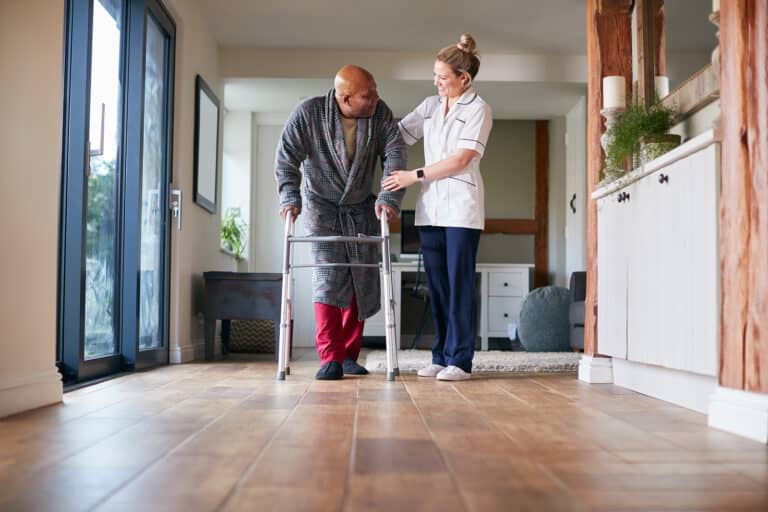When seniors face challenges with their mobility, they might have trouble also with emotional wellness and remaining as independent as they want to be. Companion care at home can offer seniors support they need to improve their quality of life. They can do this because of the social engagement they offer to seniors during their visits.
Understanding the Challenges of Limited Mobility
Mobility limitations obviously cause physical challenges, but there’s more to it than that. Seniors may have more trouble leaving their homes when they have limited mobility, so that can reduce their ability to interact with other people. They may also have more trouble with general physical activity, which can further contribute to emotional strain, reduced self-esteem, and other issues like anxiety or depression. Seniors with limited mobility may feel increased loneliness, which can further contribute to anxiety and depression.
Encouraging Social Connection
Companion care at home offers consistent, meaningful interactions to seniors in their own homes. Seniors have someone to talk to and spend time with, making it more likely they’ll build connections and reduce loneliness and isolation. These important connections allow seniors to experience positive interactions that further build their confidence in reaching out to others.
Promoting Mental Stimulation
Spending time with other people and engaging in conversation is fantastic for brain health. Companion caregivers can talk with seniors about topics that stimulate their minds and engage in activities that boost brain health. Puzzles, card games, and hobbies are all different ways that seniors can further keep their brains stimulated and these activities are a lot more fun with the company of companion caregivers.
Offering Emotional Support
Companion care at home offers a compassionate person to listen to seniors. They can help seniors work through some of their feelings simply by talking with them. They can also let them vent their frustrations around having more trouble with mobility. Just talking with someone can offer so much emotional support for seniors.
Engaging in Activities Together
Unlike home care providers, companion caregivers don’t engage in hands-on care tasks like managing personal care tasks or household tasks. But they can make it easier for seniors to set up activities like crafts, painting, or fiber arts. That allows seniors to continue engaging in activities they enjoy without feeling limited by what they have trouble doing.
Sharing Information with Family Caregivers
When family members and family caregivers live farther away, they may not be aware of some of the details involved in their seniors’ lives. Companion care at home can help family members to stay aware of important information related to their care. This allows family caregivers to make better decisions related to the senior’s care.
Companion care at home is an easy solution for seniors who aren’t as mobile as they used to be or as they want to be. Companion caregivers come to visit seniors in their own homes and offer emotional support in a variety of different ways. They focus on companionship and engagement, improving quality of life as they do so.
If you or a senior loved one are considering companion care at home in Millburn, NJ or surrounding areas, please contact the caring staff at Adult Alternative Home Care today. (888) 664-1769
- Home Care Assistance Can Help Seniors Manage Self-Care Tasks - April 24, 2025
- The Superfood You Shouldn’t Miss - April 9, 2025
- First Home Care Visit? Here’s The Inside Scoop - April 9, 2025


